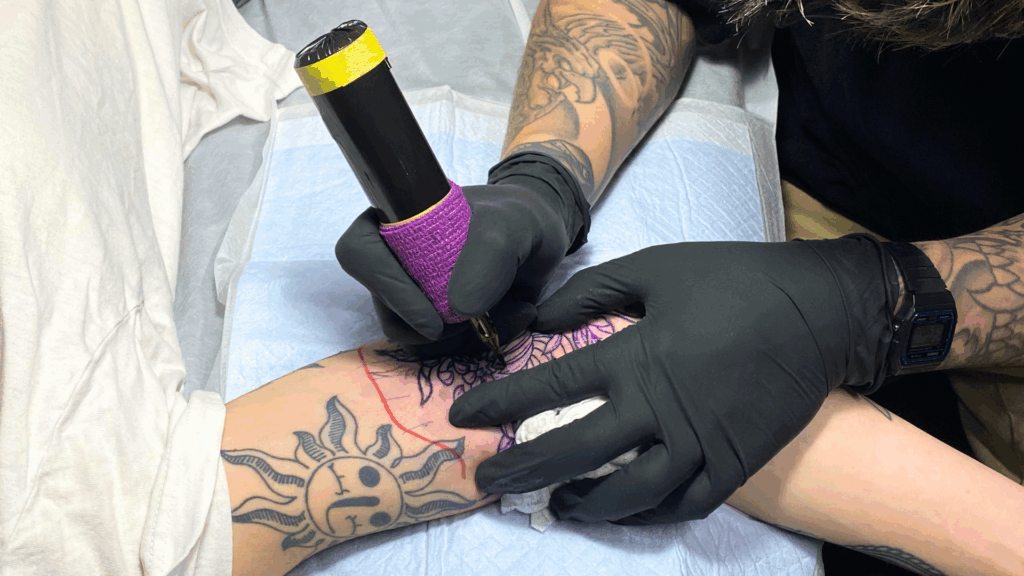Language exchange events serve as amazing opportunities for people wanting to practice languages in a completely relaxed environment. This guide will provide you with the best options for your Korean language exchange needs in Seoul.
What is a Korean language exchange and what are the benefits?
A language exchange is when you practice the language you are learning with native speakers of that language. It is a great tool to learn about Korean life, language, and culture. Language exchanges can be done in person or online.
The benefits of a Korean language exchange are increased confidence using the language, real life conversation practice, and ability to make new friends! Whether in person or online, you can find a relaxed space to have fun language practice.
7 types of Korean language exchanges available in Seoul
1. University mentoring programs
Some of our university partners often offer Korean language exchange programs for their language students. Through this they can promote language exchange between International and Korean students in addition to supporting global students adapt to life in Korea.
You can check out what each of the language programs and universities offer in terms of language mentoring here: Find the perfect Korean language school in Korea.
2. GSM Terrace
GSM (which stands for ‘Global Seoul Mates’) is a Korean language exchange platform with two locations in Seoul. They offer tutoring support sessions in the day as well as regularly holding events at their Gangnam and Hongdae locations. GSM is a great place to visit for language exchange as you can attend at any time of day and partake in a very relaxed form of language practice. Besides English and Korean, GSM also offers language exchange in Chinese, Japanese, French and Spanish to cater to all of their visitors’ needs.
For most of GSM’s parties and events, entry costs around 10,000 won to attend. This fee includes entry for one person, one free drink and a free entrance coupon for some of Seoul’s most popular clubs. If you decide to pay online for entry to events you will also be eligible for a discount.
GSM website: https://globalseoulmates.com
3. Meetup
Meetup is a website you can use to find language exchange groups or events near you. In addition to Seoul, Meetup’s events are also available in cities such as Busan, Suwon, Incheon and Ansan. Using Meetup is very straightforward, you just need to create an account on the website to be able to confirm your attendance at events.
You can also subscribe to specific groups/hosts to see a range of meeting options. Once your participation for an event has been confirmed by the organizers, the details and exact location of events will become available for you to use on the day.
Website: Find Events & Groups | Meetup
Through Meetup you can also participate in unique experiences in addition to practicing languages. Many clubs hosted by Meetup include activities such as dance lessons, yoga, and hiking to incorporate new elements into language exchange. Groups such as Digital Nomads Korea and SeoulShare have numerous members resulting in them being able to organize incredible events. If you are interested in taking part in unique trips and cultural activities, these groups are great to check out.
4. HelloTalk
If you are interested in using apps to find Korean language exchange partners, HelloTalk allows you to set up Korean language exchange through their mobile app. You can easily find and chat with native speakers from around South Korea if you don’t want to attend language practice events in person. Looking for language partners that can teach you Korean can be done through instant messaging, voice notes, and video calls to best suit your language learning method.

5. Somoim 소모임
Somoim (소모임), which means ‘meetup’ in Korean, is an app for in person club activities. This app has become increasingly popular since its launch with Koreans wanting to make friends with common interests. In addition to language exchange this app can also be useful to bond with others who share your hobbies. Through the app you can join regular get-togethers (정모) or spontaneous meetups (번개 모임).
Somoim is ideal for those who already have a good grasp on Korean who are looking to meet new friends. Over 1,000 offline meetups happen every week through the Somoim app so it is a great app to check out for Korean language exchange.
6. Hi Native
If you have specific language questions that you would like answered, using a website such as HiNative is also a great option in addition to HelloTalk. On HiNative you can ask questions specifically about Korean words, grammar or even record your Korean pronunciation and have native speakers reply with their individual feedback. On HiNative every question asked by its users are valid and you will be able to see a range of great explanations to your Korean language query.
HiNative Website: HiNative | A question and answer community for language learners.
7. Culcom Korea
Culcom is a well-known Korean language exchange cafe network in South Korea, established in 2004, with 32 branches across the country, including Seoul, Incheon, and Busan. It offers free language exchange opportunities, allowing foreigners to practice Korean with native speakers and vice versa.
In addition to language exchange, Culcom provides a comfortable environment with study materials, board games, and even game consoles, creating a fun atmosphere for learners and cultural enthusiasts. Operating hours and registration processes may vary by location, so it’s best to check directly with the desired branch for up-to-date details.
Culcom Website: Main page | Registration link Culcom App: IOS | Andriod
If you would like to learn the Korean language in a fun and casual way, participating in Korean language exchange groups while you are in Seoul can help you create a solid support network in your language learning journey.
If you enjoyed this article, keep following the Go! Go! Hanguk blog and don’t hesitate to contact us about living and studying in Korea.
For study holidays of just a few weeks, including language courses, accommodation, and cultural activities, see our Study trips page.









